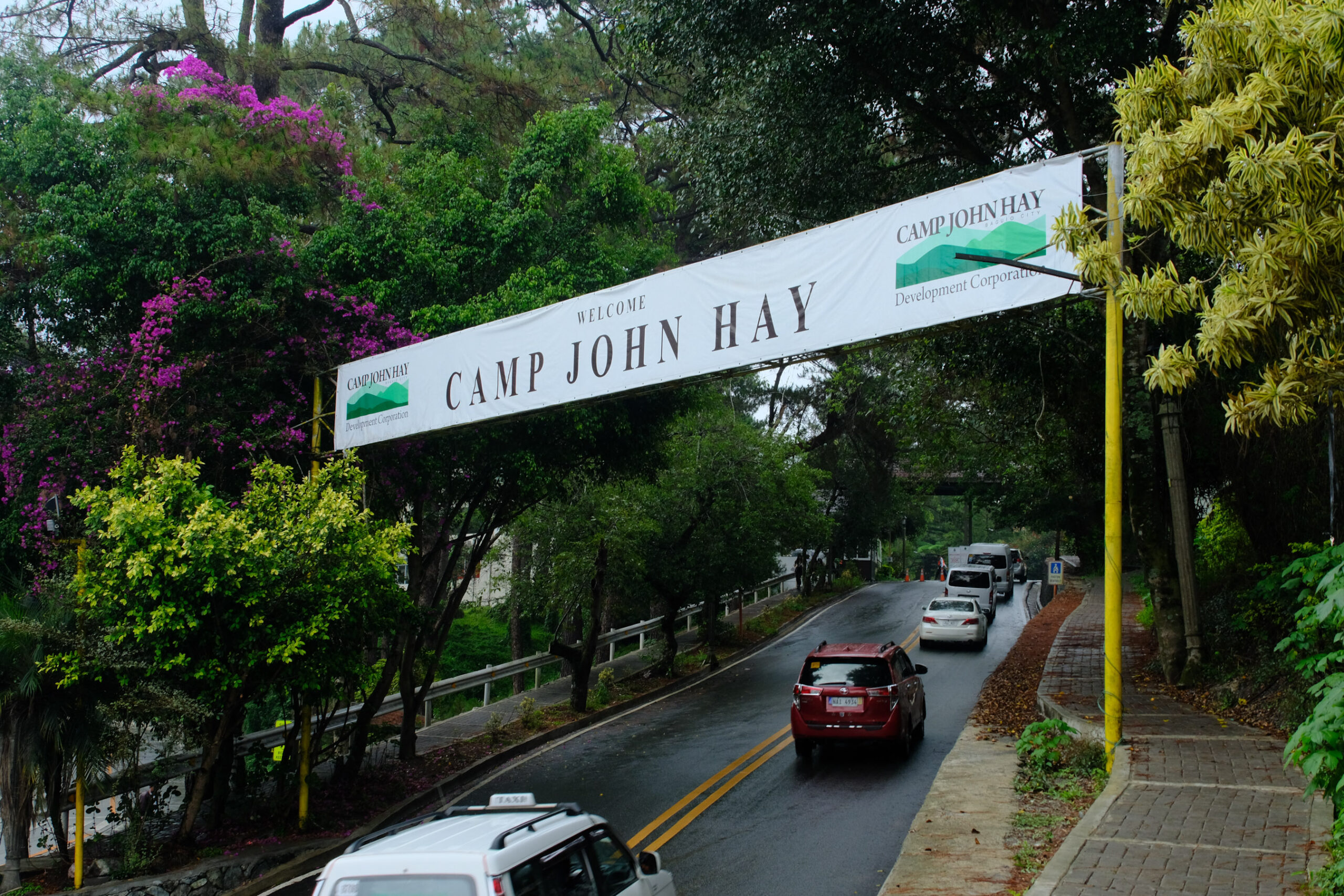
Some 200 hectares of the 600-ha Camp John Hay have been developed into a tourism estate and a special economic zone featuring a technology hub, making it one of the most viable economic centers in Baguio City. —NEIL CLARK ONGCHANGCO
BAGUIO CITY — Fresh talks have been opened to resolve the standoff between the government and the developer of Camp John Hay which a 2015 arbitral ruling was supposed to cure.
At a press briefing on Wednesday, businessman Robert John Sobrepeña said there was an ongoing discussion on a settlement deal drafted by the Bases Conversion and Development Authority (BCDA) that would be submitted to the Supreme Court in order to end the feud once and for all.
Sobrepeña leads the consortium that won the 1996 lease contract to turn Camp John Hay into a tourism estate.
BCDA has administrative control over the former John Hay Air Station and other American base lands. In 2008, it agreed to renegotiate the 1996 lease at the request of Camp John Hay Development Corp. (CJHDevco) because of its unpaid rentals, which ballooned to P3,323,181,694 by 2013. The developer had claimed that not all of the 247-hectare leased property was accessible to CJHDevco.
READ: BCDA not recognizing ancestral lands in Camp John Hay
In 2012, lawyer Arnel Paciano Casanova, then BCDA president, instituted termination proceedings against Sobrepeña because of CJHDevco’s unfulfilled obligations as well as its “material and incurable [contractual] breaches.”
Arbitration
Both parties submitted to arbitration. In 2015, the tribunal formed by the Philippine Dispute Resolution Center Inc. ruled that both BCDA and the developer violated their lease contract, which it subsequently rescinded. The tribunal directed CJHDevco to relinquish the leased property and its assets to the government and directed BCDA to return the developer’s investment totaling P1.42 billion.
However, the arbitration ruling itself became the subject of more litigation after a Baguio Regional Trial Court and the Court of Appeals stopped BCDA from taking over the leased properties of “third parties.”
These are residents of Camp John Hay’s forest lodges, log homes, country homes, and condominium units who own 50-year leases over these properties and who were evicted by BCDA. Also counted among the third parties are the Camp John Hay Golf Club, which operates Camp John Hay’s golf course, and the CAP Trade and Cultural Center.
This issue is being heard by the Supreme Court.
Since October last year, “we have been in talks with (the new leadership of) BCDA … and as a result of those talks, BCDA has made the first draft of an agreement where both [parties] will basically resolve any legal issues they may have, jointly,” said Sobrepeña, CJHDevco chair.
This document has been passed “back and forth” between BCDA and CJHDevco, “and I hope this will be finalized soon,” he said.
“The issue that was raised to the Court of Appeals [involved] when the payments would be made, [if there should be] interest rates and the third parties. These three issues are now pending before the [SC] But both CJHDevco and BCDA have agreed to just go into a direct agreement and have that approved by the Supreme Court as a settlement agreement,” Sobrepeña said.
“The third parties are the most important people to us … They were never part of the case between what were essentially two companies. They were buyers in good faith and they were not parties to the [arbitral] decision,” he said. “BCDA, in our discussions, has agreed to respect the rights of third parties.”

